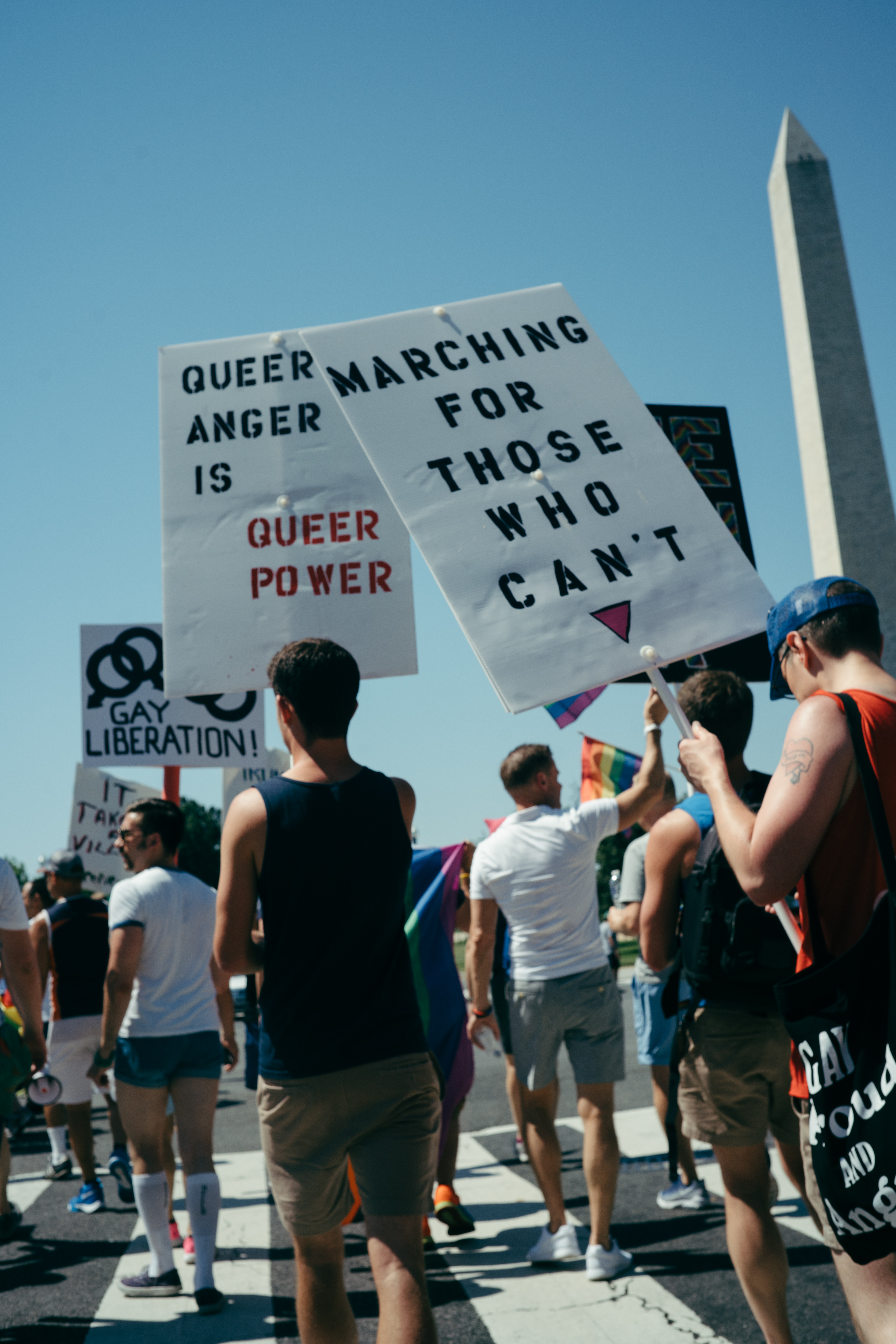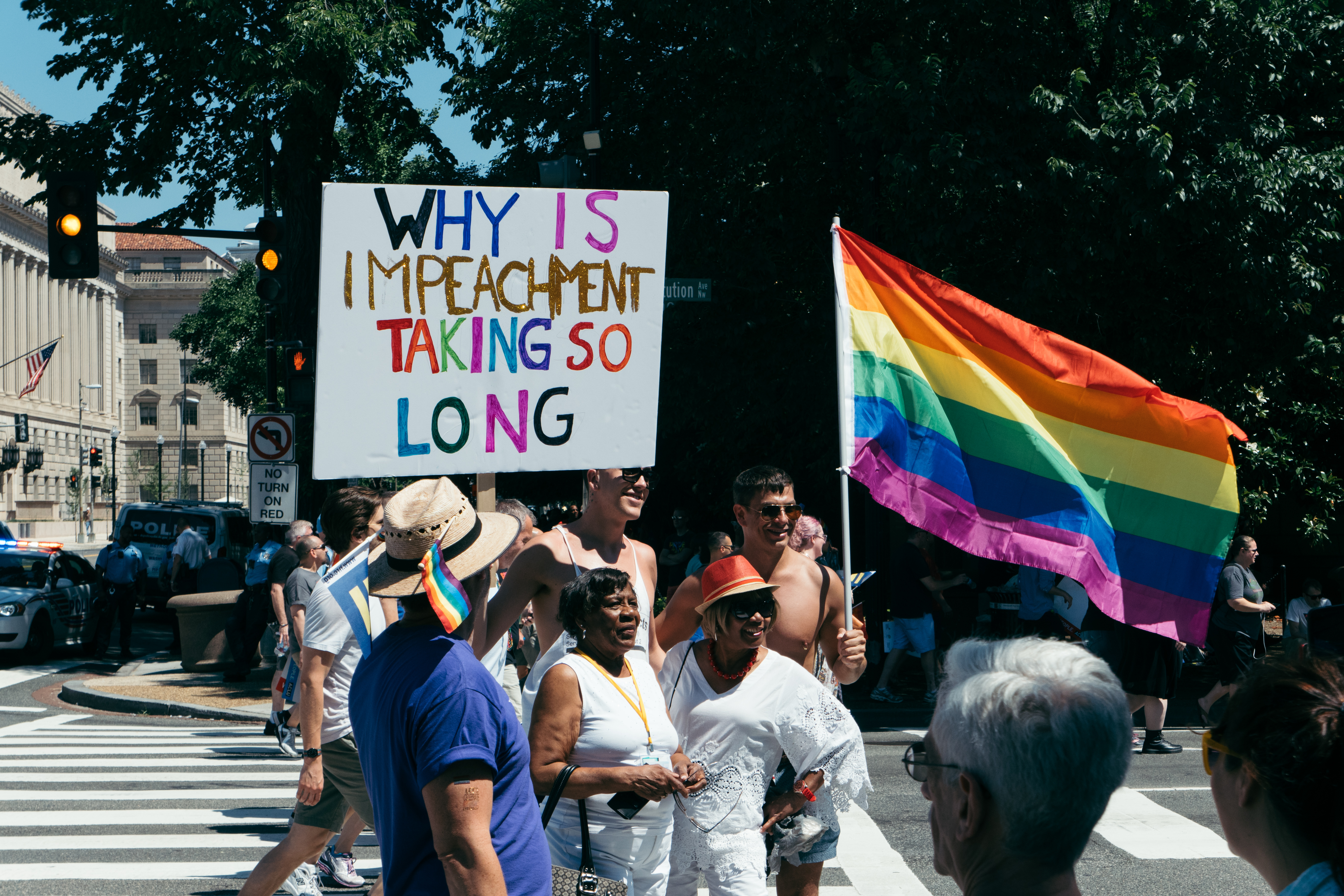Shortly after coming out in 2008, I worked a summer job on Christopher Street, in the heart of New York City’s West Village. The annual pride parade rolled by one weekend morning, and I remember how deeply conflicted it made me feel. There seemed to be as many signs for Delta, Bank of America, Bud Light, and other corporations as there were saying anything political. The corporations were there to loudly (and suspiciously) declare how prideful they were, and they were fighting the tide of actual declarations of, you know, LGBTQ pride, made by individuals who actually embody those identities.
Times have changed. Sure, pride parades are still relatively corporate-friendly affairs, and the same types of mega-corporate sponsors still reign—New York Pride is sponsored by the likes of T-Mobile, Delta, TD Bank, and Coca-Cola; New Orleans renamed this year’s pride celebration “GE Digital Presents: New Orleans Pride;” Pittsburgh’s pride is now named after a fracking company.
Videos by VICE
But in 2017, politics have come to a head at pride events across the country, as activists push for elected officials, the media, and those less politically inclined in the gay community to recognize that even as Chipotle and Wells Fargo embrace pro-gay imagery, there’s still vast amounts of work to be done to ensure the safety of LGBTQ people, especially LGBTQ people of color. And this year, controversies over the inclusion of police and other state representatives have taken center stage at some pride celebrations, after years of attendee complaints that they felt uncomfortable with their inclusion.
“Queer and trans people of color aren’t experiencing less violence than they did in 1969,” said Angel Croft, a volunteer organizer with F2L, a New York–based organization that raises money and organizes for queer and trans people in the New York prison system. “We are still routinely profiled, arrested, imprisoned. Where are the white gays on floats [to represent us] then? Why did pride start as a riot and end up as a corporate-state sponsored event? Who took power?”

On Sunday, two events in Washington, DC, drew attention to the re-politicization of pride. There was the first-ever Equality March, which was loosely affiliated with January’s Women’s March, and centered on issues of violence against queer and trans people and racial justice. Catalina Velasquez, a co-chair of the Equality March and an organizer with Casa Ruby, a DC-based LGBTQ center, said the march was a success, drawing in tens of thousands of protesters and helping to bring attention to those usually excluded from the narrative of mainstream pride celebrations.
A day earlier, DC’s annual Capital Pride took place. And while it included celebrations of corporations and police, it was also disrupted: A group under the banner of No Justice No Pride interrupted the parade, at one point forming a human chain in front of parade attendees from Lockheed Martin, the multibillion-dollar corporation that manufactures weapons for the US government. The protesters were there to implore Capital Pride to ditch its corporate sponsors and focus on issues affecting queer and trans people of color.
But according to activists affiliated with No Justice No Pride, event organizers did not acknowledge their demands. They also felt that some attendees were actively hostile toward them.
“White men were yelling at the organizers, throwing water bottles at us,” said Elle Hearns, a co-organizer of the No Justice No Pride action on Sunday and director of the Marsha P. Johnson institute, an activist organization for black trans women named after the black trans woman who helped start the Stonewall Riots. “There was definitely a division between race and class between the [Capital Pride attendees] and the disruptors.”
Hearns said she left the march feeling slightly dismayed, unsure of whether those represented by celebrations like Capital Pride—often white, cisgender, and monied—would ever understand the struggle those disrupting the parade wanted to bring light to.
“HIV rates are higher than ever among black trans women, we’re still being murdered,” she said. “But the people who have the power and the money have a different narrative.”

Pride might be more overtly political this year because it’s been a particularly bad year for LGBTQ people, especially people of color: Yesterday marked the one-year anniversary of the Pulse nightclub attacks, during which 49 people, most of whom were Latinx, were gunned down. And a new report from the National Coalition of Anti-Violence Programs (NCAVP), which surveyed more than 1,000 survivors of anti-LGBTQ hate violence, found that 2016 was the deadliest year on record for LGBTQ people in the US.
According to the NCAVP report, there was a 17 percent increase in anti-LGBTQ homicides in 2016—28 total, not including the Pulse attack. Nearly 80 percent of those killed were people of color, according to the report. The report also found that those surveyed had mostly negative interactions with the police when they reported violence, with black LGBTQ survivors of violence nearly three times more likely than non-black survivors to experience excessive force from police.
The presence of police at pride parades has been controversial for years. Activists point out that the original pride celebrations in New York City started as riots against police brutality of LGBTQ people. Last year, Black Lives Matter protested Toronto’s pride for its police presence, leading to the decision that police will not march in uniform at this year’s pride. Activists in New York and San Francisco have made similar calls to end police participation in pride this year, but so far those pride celebrations have committed to a police presence.
And then there’s Trump and his administration, of course, which has already rolled back protections for LGBTQ workers and transgender students. Emily Waters, the author of the NCAVP report, said that people are more scared than ever.
“There’s definitely an increased climate of fear,” Waters said. “Bigoted views are being legitimized on the federal level, so there’s a whole other level of power.”

Organizers of alternative pride marches like the Equality March say that Pride Month is a great way to bring attention to this increased fear and increased violence LGBTQ people of color face, but cautioned that pride activism can make people feel like they’re doing something and let them off the hook for the rest of the year.
“The disruption of these events shows that pride has always been about activism,” said Lourdes Ashley Hunter, the director of the activist organization Trans Women of Color Collective. “It’s good people are paying attention. But they need to keep paying attention. Disruption is good, but it doesn’t put money in our pockets. It’s not jobs and education. It’s not stopping people from killing people. I can disrupt something and then go home and not afford to eat.”
The solution, Hunter and others say, is a continued push for systemic change. If pride celebrations nationwide keep singing the same tune—remaining apolitical, shutting out activists, and courting police and corporations that many feel are detrimental to the LGBTQ community—activists say that the cultural and political progress the LGBTQ community has made will end up stagnating, with white, cisgender, and monied gays being celebrated, and the rest of the movement being left behind.
Follow Peter Moskowitz on Twitter.




